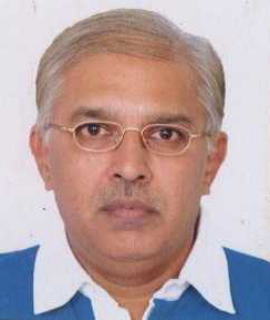Microbial Biotechnology and Microbe Engineering
Microorganisms are crucial cell factories for the manufacture of single cell proteins, small and large metabolites, and proteins. Methods and strategies for the production and use of eukaryotic and prokaryotic microorganisms (e.g., yeasts, fungi, algae) and archaea for substance synthesis, as well as the use of the microorganisms or their substances in applications in the fields of white (industrial), red (pharmaceutical/medical), and green (agro-environmental) biotechnology, are included in the field of microbial biotechnology. It also addresses the use of microbes or their products in biocatalysis, energy, food and feed, mining, and the development of novel materials.
Engineering and applied biological sciences have identified microbial engineering technologies as a significant and relevant topic area. A microbial engineer works on biotechnology's biological, chemical, and engineering elements, manipulating microbes and discovering new applications for them. Microbiome engineering is becoming more popular as a way to address problems in health, agriculture, and climate change. Microbiome engineering aims to improve an ecosystem's function by changing microbial makeup. The design of a microbiome with increased function and the creation of an improved microbiome are two important obstacles for successful microbiome engineering. Microbiome engineering is a field that is fast growing. Microbiome engineering for human health has had several remarkable successes, particularly in the infant gut, bioremediation, wastewater engineering, and agriculture.
- Primary Metabolites
- Food, Beverages and Supplements
- Secondary Metabolites and Natural Products
- Pharmaceuticals and Diagnostics
- Bioenergy
- Biomining, Including Oil Recovery and Processing
- Bioremediation
- Biopolymers, Biomaterials
- Bionanotechnology
- Biosurfactants And Bioemulsifiers
- Compatible Solutes and Bioprotectants
- Biosensors, Monitoring Systems, Quantitative Microbial Risk Assessment
- Technology Development
- Protein Engineering
- Functional Genomics
- Metabolic Engineering
- Metabolic Design
- Systems Analysis, Modelling
- Process Engineering
- Biologically-Based Analytical Methods
- Microbially-Based Strategies in Public Health
- Microbially-Based Strategies to Influence Global Processes

Xingmin Sun
University of South Florida, United States
Bing Chen
Memorial University, Canada
Shailesh R Dave
Xavier’s Research Foundation, LCRD, India
Michaela Hostetler
The Ohio State University, United States


Title : Degradation of chitin using chitinase produced from molecular identified bacteria
Afra Mohammed Baghdadi, Jeddah University, Saudi Arabia
Title : Antibiotic resistance of clostridioides difficile
Xingmin Sun, University of South Florida, United States
Title : Metagenomics of the saline habitats of coastal Gujarat, India: Emerging potential for biocatalysis and bioremediation
P. Satya Singh, Saurashtra University, India
Title : Molecular Response Analysis for Lentinus squarrosulus AF5 under Azo dyes Stress: An Integrated Proteome Dynamics and Putative Metabolic Cascade
Anshu Mathur, Indian Institute of Technology Roorkee, India
Title : The necessity for innovative biotechnological solutions for the treatment of dying and textile effluents and their prose and cones
Shailesh R Dave, Xavier’s Research Foundation, LCRD, India
Title : In search of obesity-linked signature gut microbial features and species contributors of reproducible pathway shifts
Deep Chanda, National Institute of Technology, India